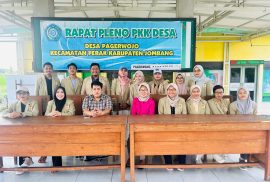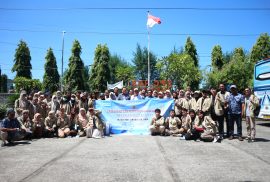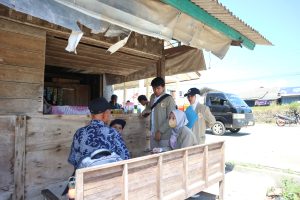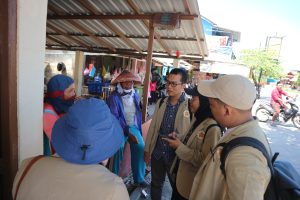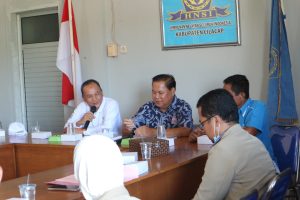A varied dialect within a multilingual country might emerge as a phenomenon where the people speak the same language but still can’t understand what other people say from another area. For instance, the Javanese people who live in the Special Region of Yogyakarta and East Java speak and hold Javanese culture. However, they might be confused or clueless about what the listener says in a conversation. Thanks to the language variation that brought so-called dialect.
Dialectology, a linguistics study focusing on how language differs based on geography and social factors, comes to assist in answering the question. In this case, 14 students from dialectology class attempted to study vocabulary (words or phrases) variation specific to certain regions. They went to Jombang, East Java on May 10-11, 2024, to find the vocabulary variation of the Javanese language.
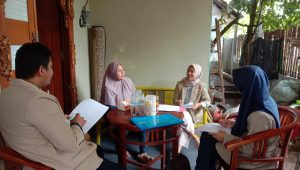
“There are 14 students in our class and they spread into 5 groups. Each group went to different sub-districts, which were Perak, Wonosalam, Diwek, and Peterongan. We brought 200 Swadesh word lists to find out the changes from the Javanese standard by interviewing an informant in each sub-district,” Eduar explained. Those sub-districts were chosen based on their hypothesis. “Diwek and Perak are in the west of Jombang, so we predict that the people still use the Mataraman dialect while Wonosalam and Petarongan are in the east. Thus, the people are most likely to use the Surabayanan dialect,” Dina added. From the data gathered, they compared and mapped the changes.

The students said that this field trip was a priceless experience. It gave a clear picture of how a linguist collects the data such as planning the program, coordinating with the locals, and interacting as well as interviewing them. “It was fun and always be a valuable experience for me. As a Javanese native speaker, I learned a lot from this experience. For instance, I didn’t know that the word kenceng means lurus (go straight on) in their dialect. All I know kenceng is banter or kencang (fast). It, of course, enhances my knowledge,” Dinda illustrated what she felt.
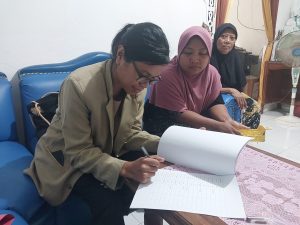
“I think it would be fantastic if we could continue to hold field trips like this in the future. We learned a lot. I hope the department, the faculty, or the parties involved will always support this sort of activity,” said Ningrum.

